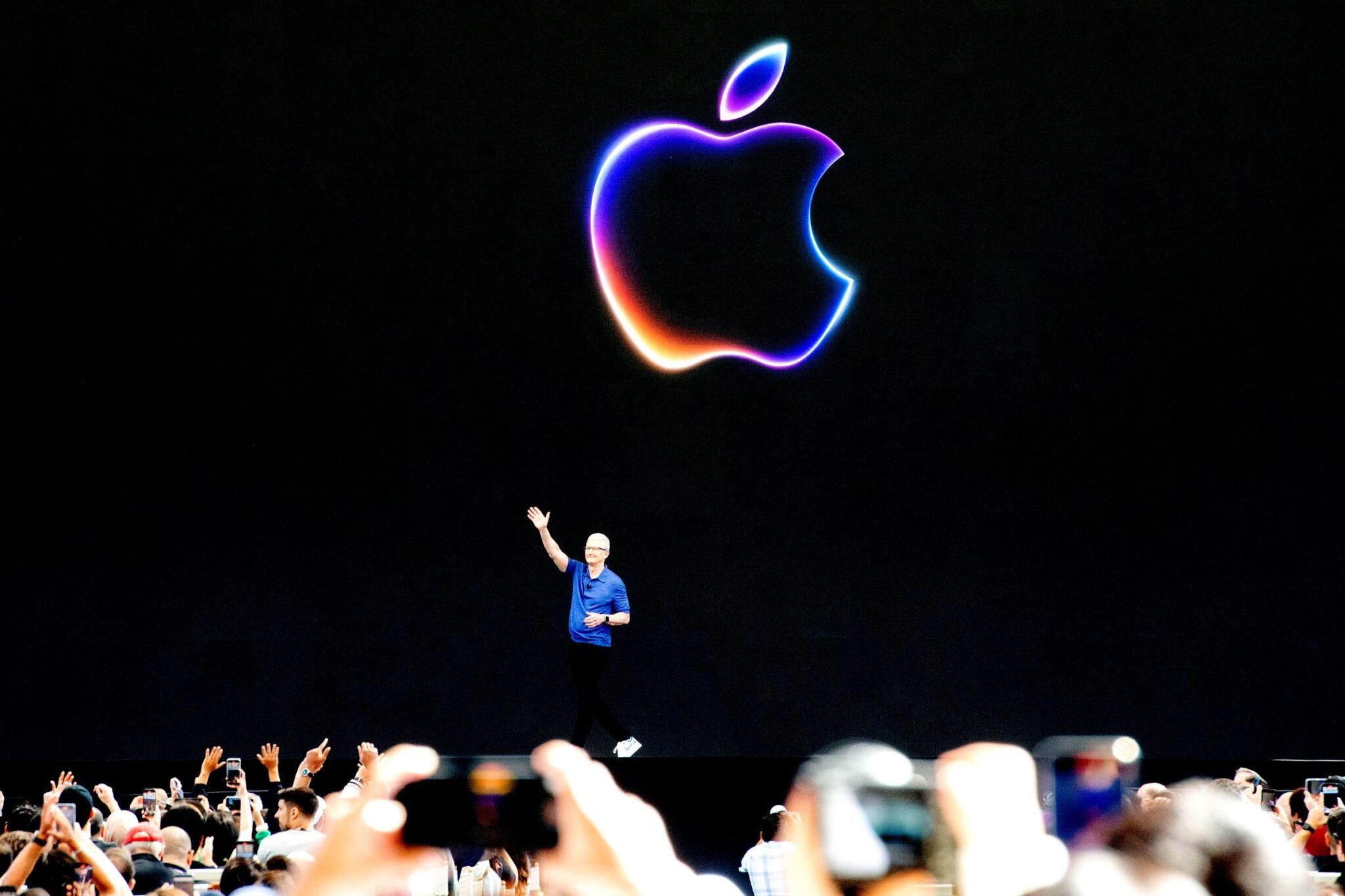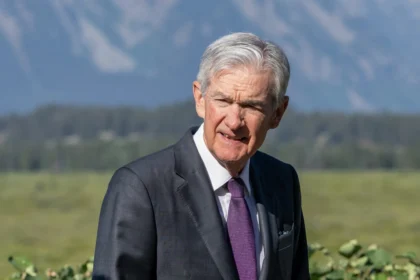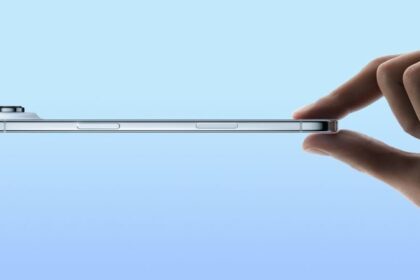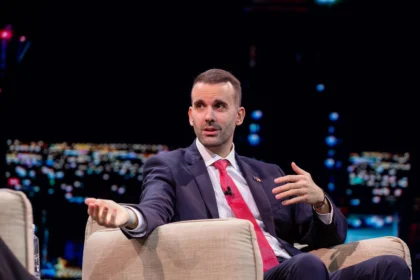Few questions in global business generate as much intrigue as this one: When will Apple name a new CEO?
The world’s most valuable company has entered its thirteenth year under the leadership of Tim Cook, a tenure marked by historic growth, flawless operations, and Apple’s evolution into a services, silicon, and ecosystem powerhouse. Yet Cook is now in his early sixties, the executive bench is shifting, and investors are increasingly attuned to succession signals coming out of Cupertino.
- Why the Succession Question Is Rising Now
- 1. Cook’s Age and Tenure
- 2. Apple’s Strategic Pivot
- 3. Recent Executive Reshuffling
- 4. Rising Market Pressure
- When Might Apple Announce a Successor?
- Realistically, Cook’s retirement window is likely between 2026 and 2029.
- Announcements typically come 6–12 months before the transition
- Who Are the Likely Internal Contenders?
- 1. Jeff Williams — The Closest to a “COO-to-CEO” Pipeline
- 2. John Ternus — Apple’s Rising Hardware Star
- 3. Deirdre O’Brien — The Cultural Force
- 4. Eddy Cue — The Services King
- 5. Dark Horse Candidates
- Could Apple Choose an External CEO?
- The Post-Cook Apple: What Will Change?
- Why Succession Matters More at Apple Than Almost Anywhere Else
- Conclusion: A Transition Is Inevitable—But Apple Will Choose the Moment
Apple’s leadership transitions have always been rare and monumental—first from Steve Jobs to Cook in 2011, and eventually from Cook to whoever will become the third CEO of the modern Apple era. But unlike many companies where succession is telegraphed years in advance, Apple operates with extreme secrecy, careful internal grooming, and a culture built to avoid power struggles or public speculation.
Still, the signs are accumulating, and industry watchers are asking with renewed urgency: When will Apple choose its next chief—and who will it be?
Why the Succession Question Is Rising Now
Although Tim Cook remains highly effective, energetic, and widely respected, several factors make the question inevitable:
1. Cook’s Age and Tenure
At 63, Cook has already surpassed Steve Jobs’ total time as CEO. While he appears in excellent health, corporate boards typically begin formal succession planning well before a CEO enters their mid-60s.
2. Apple’s Strategic Pivot
Apple is transitioning from a hardware-centric identity into a multi-pillar company focused on:
- In-house silicon (M-series, A-series)
- Services (over 1 billion paid subscriptions)
- Wearables and health tech
- AI and machine learning
- Future categories like AR/VR and autonomous systems
This shift favors a CEO with deep operational, engineering, and product skills—someone able to oversee Apple’s next decade of platform integration.
3. Recent Executive Reshuffling
Subtle changes in Apple’s organizational map have stirred speculation. Several senior executives have rotated responsibilities or taken on broader mandates, which analysts see as grooming behavior.
4. Rising Market Pressure
With slowing iPhone growth, intensifying regulation in the U.S. and EU, and fierce competition in AI hardware and services, investors want clarity on who will steer Apple through its next major transformation.
When Might Apple Announce a Successor?
Apple does not pre-announce transitions years in advance. Historically, the company:
- Keeps succession plans tightly internal
- Promotes from within
- Makes changes only when they are final and irreversible
- Releases information close to execution
Realistically, Cook’s retirement window is likely between 2026 and 2029.
This is based on several factors:
- Cook has said he does not plan to run Apple for “another 10 years,” a comment made several years ago.
- Apple prefers stability when launching new product paradigms (e.g., Vision Pro, AI integration).
- Cook may want to oversee at least one more generational shift—perhaps fully scaled AR glasses, Apple’s next neural-compute platform, or deeper AI integration—before stepping down.
Announcements typically come 6–12 months before the transition
Apple will not surprise the markets with an abrupt CEO change. When the time comes, internal communication will precede a public announcement packaged as a smooth, methodical succession—precisely how Cook took the reins from Jobs.
Who Are the Likely Internal Contenders?
While Apple almost certainly knows the leading candidates, the external world has narrowed the field to a few names.
1. Jeff Williams — The Closest to a “COO-to-CEO” Pipeline
Often referred to as the “Tim Cook of Tim Cook’s Apple,” Williams serves as Chief Operating Officer and has a long track record in both operations and product development. He led the Apple Watch team and is deeply respected internally.
Pros: Continuity, operational mastery, trusted by Cook.
Cons: Age—Williams is only a few years younger than Cook, making him a potential interim leader rather than a long-term successor.
2. John Ternus — Apple’s Rising Hardware Star
Senior Vice President of Hardware Engineering, Ternus has gained visibility as the face of Apple’s M-series revolution. His calm manner, technical credibility, and presentations during product keynotes suggest he is being groomed for larger leadership roles.
Pros: Engineering first, multigenerational longevity, strong internal reviews.
Cons: Less experience with Apple’s services ecosystem and public-facing leadership.
3. Deirdre O’Brien — The Cultural Force
As SVP of Retail + People, O’Brien leads global retail and human resources. She is among Apple’s most seasoned executives.
Pros: Operational and people leadership, global retail expertise.
Cons: Less product and engineering involvement, which may weigh against her.
4. Eddy Cue — The Services King
Cue oversees services, content, and Apple’s ecosystem—from music and TV to cloud and payments.
Pros: One of Apple’s longest-serving executives.
Cons: Seen as unlikely to take the top job due to age and mixed operational track record.
5. Dark Horse Candidates
A few mid-tier executives, such as Kevin Lynch (Apple Watch, VisionOS) or Mike Rockwell (Vision Pro), have the product pedigree but may remain specialized leaders rather than CEO contenders.
Could Apple Choose an External CEO?
Extremely unlikely.
Apple’s culture, secrecy, product ecosystem, and long-term strategy are difficult for outsiders to navigate. Hiring an external CEO would be viewed as destabilizing, potentially harming the company’s valuation.
Apple has always structured itself as a continuity-driven institution, with leadership cultivated internally for decades.
The Post-Cook Apple: What Will Change?
Tim Cook’s impact on Apple has been profound:
- Supply-chain excellence unmatched globally
- Expansion into wearables and services
- Massive long-term investments in silicon
- Record-breaking financial performance
- Quiet, steady leadership
His successor will inherit a company in transition—toward AI integration, spatial computing, expanding health technologies, and more aggressive global regulation.
The next CEO will need:
- Engineering credibility
- Operational discipline
- Cross-functional vision
- Global diplomatic skill
- The ability to maintain Apple’s design philosophy without stagnation
In short: Apple needs someone who blends the best of Jobs and Cook.
Why Succession Matters More at Apple Than Almost Anywhere Else
Most companies survive leadership changes with little disruption. Apple is not most companies.
Apple’s identity, culture, hardware-software integration, secrecy, and long-term product roadmap all depend on a stable, visionary leadership structure. The CEO at Apple is not just a manager—they are a curator of culture and a guardian of product philosophy.
A misstep could weaken:
- Innovation cycles
- Employee morale
- Ecosystem coherence
- Consumer trust
- Market dominance
Which is why Apple plans succession years before it announces it.
Conclusion: A Transition Is Inevitable—But Apple Will Choose the Moment
The short answer to “When will Apple name a new CEO?” is:
Not imminently—but the planning is well underway.
Expect a transition around 2026–2029.
The announcement will come with precision, not speculation.
Apple will choose a successor only when the ecosystem, product pipeline, financial posture, and internal leadership alignment are all in perfect balance.
When that moment comes, the world will once again pause to watch a new chapter begin at the most influential technology company on earth.







